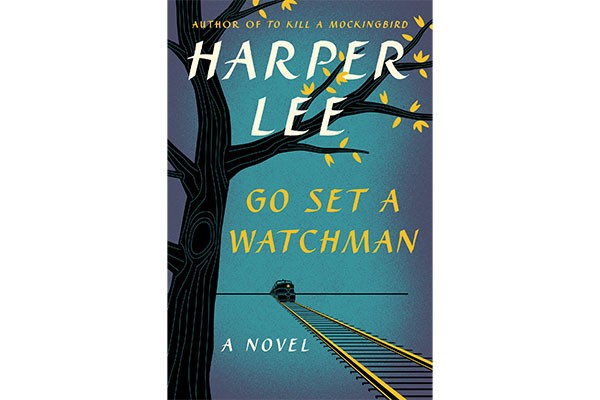There are some stories that hurt to read. They really can cut you up for a while. Go Set A Watchman is in my top ten on the heartbreak book list for a number of reasons. Written before the famous To Kill a Mockingbird but published as a sequel, it is accepted as being Mockingbird’s first draft.
Told in seven parts, Jean Louise “Scout” Finch has returned to Maycomb county, Alabama, from a glamorous New York life for two weeks. All seems well at first. Well... not really... Jem is dead and Calpurnia politely won’t talk to her... but still Scout settles into her old home comfortably, spending time with her childhood sweet-heart Hank Clinton. There are flashbacks to her childhood which warmed me (my favorite involved Dill, Jem and Scout re-enacting a Christian Revival then getting caught out by Atticus and the reverend). It’s a funny scene, but most of Harper Lee’s ‘childhood anecdotes’ aren’t just for laughs - being a grown up reading this book, one realizes the very grown up world it is set in.
Not long into her visit, Scout discovers a pamphlet titled: “The Black Plague” in her father’s papers. After following him to a Citizen’s Council meeting, she witnesses him introduce a man who delivers a racist speech. After some harsh conversations with her Uncle and Hank, Scout has a show down with Atticus, who argues that the South is not ready for Civil Rights. Atticus’s involvement with racist organisations and literature frustrates and hurts her. After a heavy argument filled with tears and frustration, Scout leaves then returns to understand that her answers are not always her father’s answers, thus he is brought down from the role of Idol to human man for the first time.
This book is, of course, well written, and Scout is brilliantly portrayed as an intelligent, independent, fierce woman. But overall it tired me. The release of the novel was as controversial as the treatment of Atticus’s character (Harper Lee at the time was experiencing declining health, had stated over the past few years that she would never publish another book, and had lost her sister and caregiver around the time Watchman was announced). While most readers of the book community would rather it had never been published, I believe that, as it is too late now, it’s ok to feel grateful.
The story in relation to her first (and once her only book) is important, creating conversation about race, the attitudes of the time as well as disillusionment, particularly with parents. Atticus, being a product of his time, is finally seen through the eyes of a grown up. He still wants Scout to stand for what she thinks is right, which is why he gives her time to be angry and fight him. But his opinions and attitudes in regards to civil rights were common and expected in such a time and place. Having loved the character so much when I first read him, I found myself going through Scout’s denial. This lasted long after I finished reading and my acceptance is forced. I felt like a little old woman, disorientated by the new technologies and morals of the time, despite it being set in the past. I also felt like a little kid, betrayed by grownups, comprehending that life isn’t all sugar and swing sets.
It was a difficult read. But I have come to the conclusion that now the world has it, we may as well decipher some good out of it, even if the people who profit more are the publishers. A film about Harper Lee is probably on its way soon.



